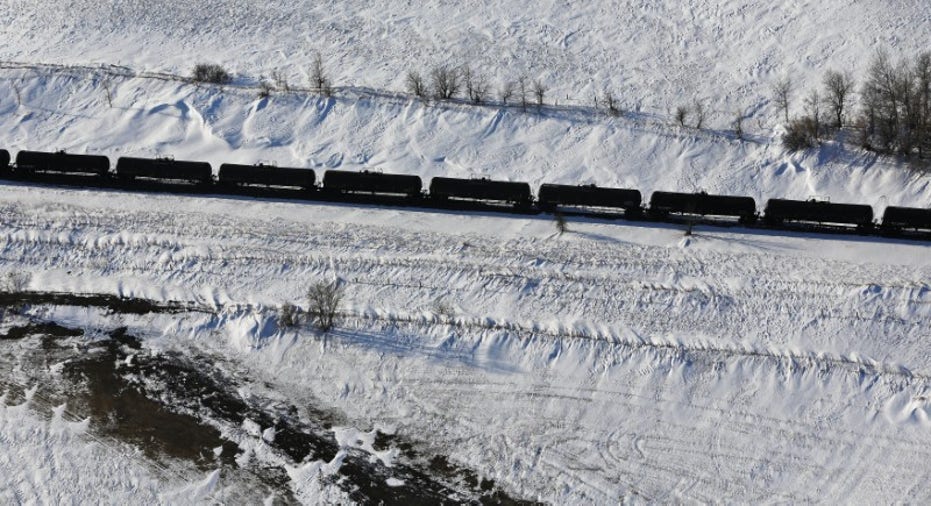Buffett's BNSF cuts ethanol shipper costs amid push for safer train cars

NEW YORK – BNSF Railway Co will start offering discounts to ethanol shippers this April if they agree to use new, safer train cars, as it pushes to scrub puncture-prone ones from its rail lines at a faster pace than required by U.S. regulations.
The move by Warren Buffett's Berkshire Hathaway rail company comes even as ethanol shippers have been slow to embrace the new train cars mandated by sweeping new regulations enacted in 2015 after a series of fiery crude oil derailments.
BNSF is offering shippers discounts of $300 per carload if they use newer model tank cars, called DOT 117s, according to a shipping notice seen by Reuters. Ethanol shippers are not required to use those newer cars until 2025, a longer timeline than given to crude oil shippers.
Ethanol shippers were given more time than crude shippers because a typical shipment of the biofuel, which is blended into gasoline, was seen as less dangerous and companies said they needed more time to overhaul the cars.
A recent decline in rail volumes has given the industry more flexibility to overhaul its cars.
There were 35,252 tank cars hauling ethanol in September, and 84 percent, or 29,597, were DOT 111s, according to the Association of American Railroads. The newer-model DOT 117s accounted for just 6 percent of the ethanol fleet, AAR data shows.
"BN (BNSF) is trying to expedite the process of switching over, (but) it's unclear if it will really work," said Neil Shah, a trader with Biourja Trading LLC in Houston.
Fuel train derailments pose significant risk to BNSF, which has a high-deductible insurance policy designed to protect against catastrophic incidents. Also, derailments leave lines shut and deliveries delayed, costing money.
There have been at least 16 significant ethanol or crude oil derailments since 2006, and nearly all involved DOT 111s, according to the National Transportation Safety Board.
Accident investigators have said DOT 111s cars tend to puncture during derailments, sometimes causing fires. The oil train that derailed and exploded, leveling part of the Quebec town of Lac-Megantic and killing 47 people in 2013, was made up of DOT-111 tank cars.
'BIGGER DISCOUNTS'
Tom Williamson, a railcar broker and owner of Transportation Consultants, said BNSF's actions have boosted interest from shippers, who could save $60,000 a month if they make two trips with 100 cars per train.
"Obviously, clients would like to take advantage of the discount, said Williamson, adding that some clients have decided to trade in their DOT 111s early for newer models in exchange for extending their leases.
He said monthly lease rates for the new rail cars have increased by $200, to roughly $650 a month, the biggest jump in some time. DOT 111s are currently leasing at roughly $250 a month, he said.
"BNSF is telling the market that they are willing to consider bigger discounts if this doesn't work," Williamson said.
BNSF declined to comment on the reasons for the move, saying the shipping notice speaks for itself. No other major U.S. railroads CSX , Norfolk Southern and Union Pacific Corp. said they were offering similar discounts.
A spokeswoman for Union Pacific, the largest U.S. railroad, said the company is currently not offering a broad incentive program because it recognizes the DOT 117s may not be practical for all customers.
Scrutiny of DOT 111s grew alongside the growth of crude rail shipments, which surged due to the lack of pipeline infrastructure in the Bakken fields of North Dakota before declining in recent months.
The latest federal figures show crude rail volumes have dropped to roughly 400,000 barrels per day, while roughly 580,000 bpd of ethanol moves on U.S. rails, EIA data shows.
In 2009, DOT 111 tank cars carrying ethanol derailed and exploded in Illinois, killing one woman.
(Reporting by Jarrett Renshaw and Chris Prentice; Editing by Paul Simao)



















